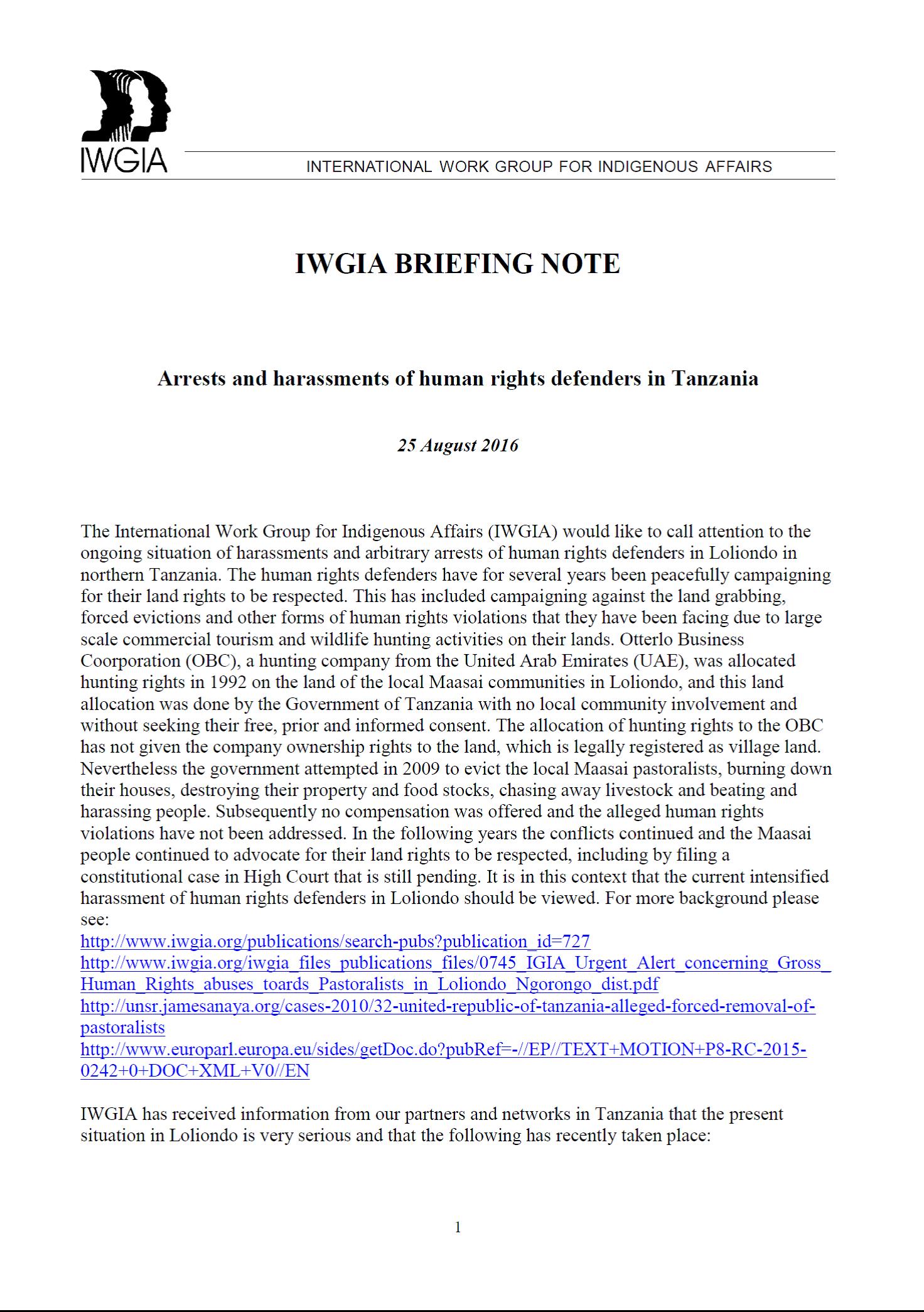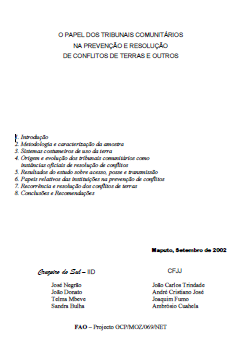Arrests and harassments of human rights defenders in Tanzania
This briefing note call attention to the ongoing situation of harassments and arbitrary arrests of human rights defenders in Loliondo in northern Tanzania.It offers an account of the recent events taking place in the area and background information.
IWGIA believes that these developments are a cause of great concern. The detentions, harassment and trumped up charges undermine civil society and other stakeholders, limiting their options to carry out human rights work in Tanzania.







